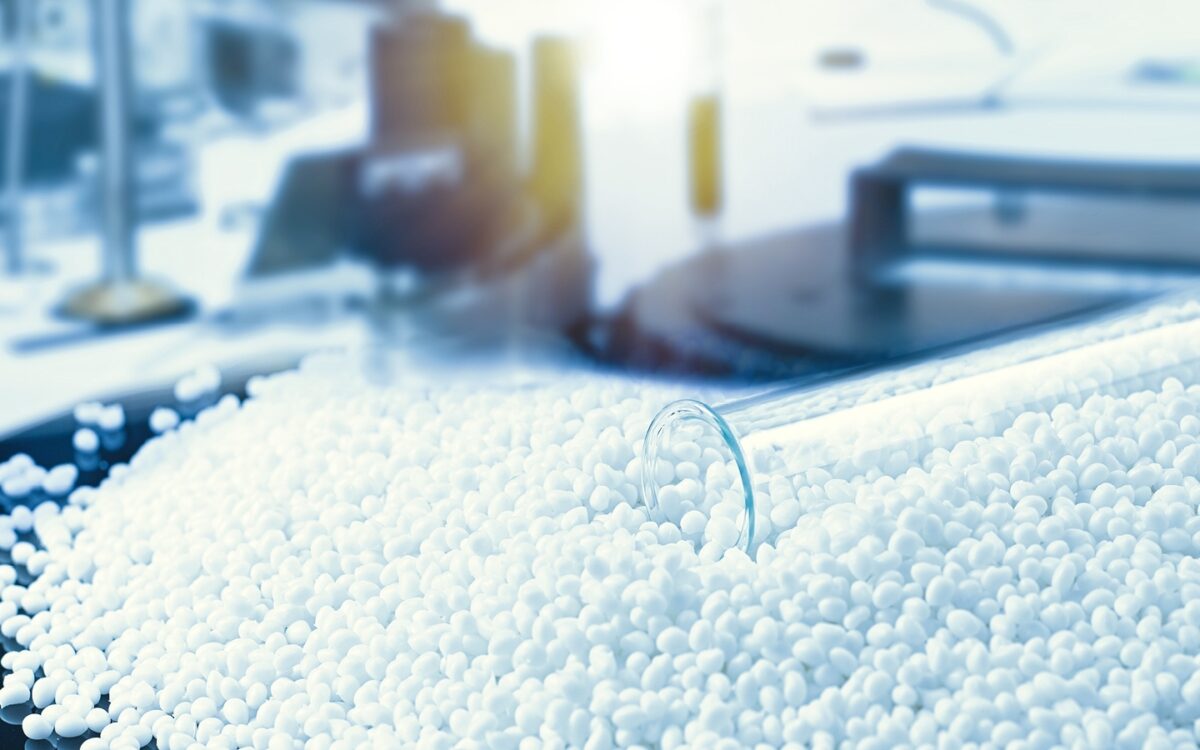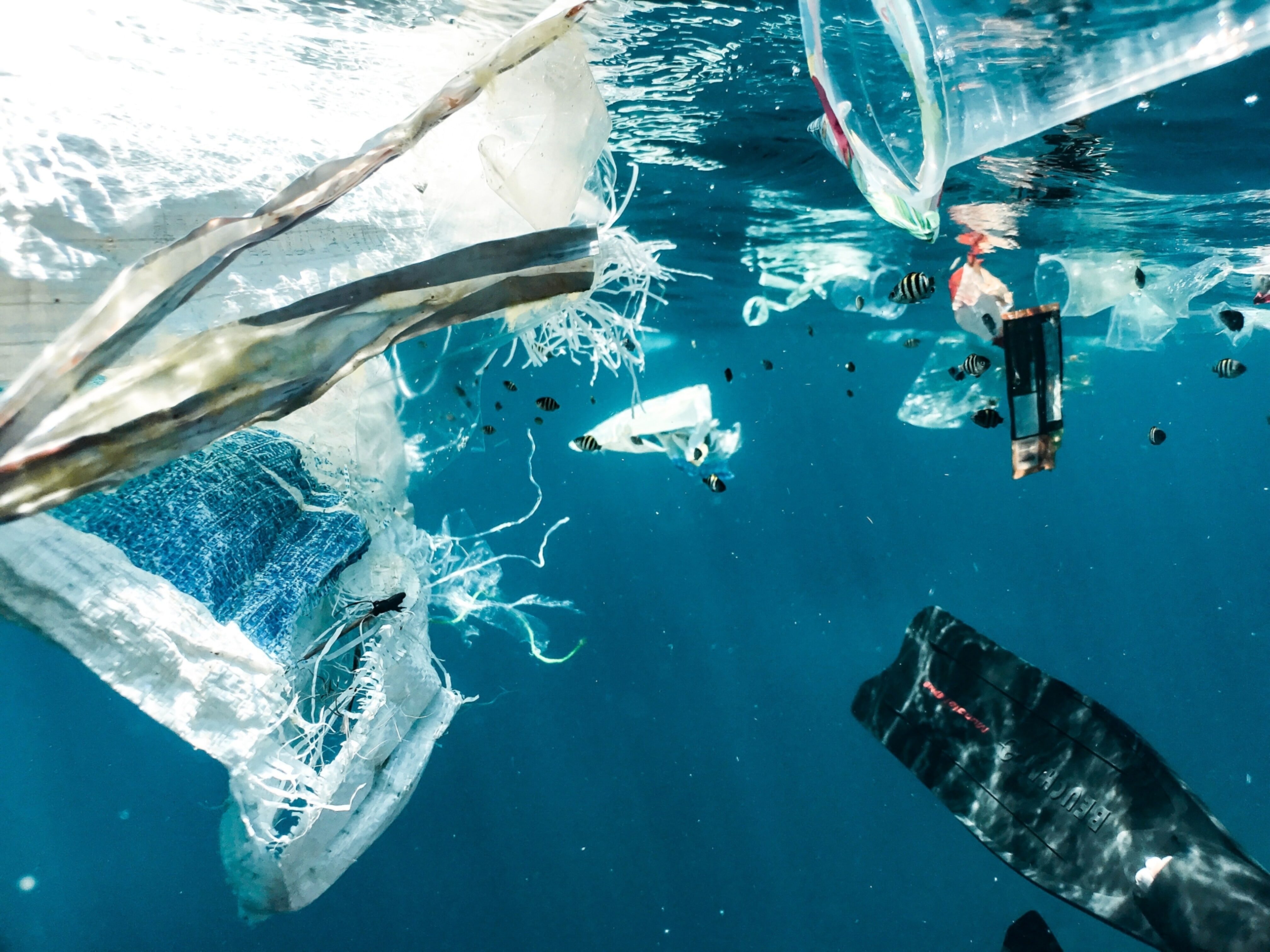

There are major concerns about the impact that plastic waste is inflicting upon our environment, especially within our oceans.
While understanding the need to address this significant challenge, it’s also important to recognise the positive role that plastics play in helping us develop future technologies that will drive environmental improvements and safeguard food supplies for a growing global population.
So how do we get to grips with the growing levels of plastics manufacturing and the adverse impact this is having on our environment while developing new means of creating sustainable plastics that can help ultimately lower greenhouse gas emissions and contribute to the circular economy?
Dr Jennifer Garden, one of the UKRI Future Leaders Fellows at the School of Chemistry within the University of Edinburgh, is a leading figure in addressing this challenge. As founder of the ‘Garden Group,’ Dr Garden and her committed team is focused on utilising chemistry-led solutions in the production of more recyclable forms of plastics using materials from renewable feedstocks.
In 2019 Dr Garden also joined an international team of academics from the UK, China, Japan and Germany as part of the 8th Chemical Sciences and Society Summit. Their goals were to assess the current status of sustainable plastics, identify the most pressing research challenges in this area, and make recommendations about how the field should progress.

Greening up plastic and its image
There is no doubt that plastic suffers from bad PR, and deservedly so: according to the UN Environment Programme, one million plastic bottles are purchased every minute and an estimated five trillion plastic bags are used worldwide every year. Half of all plastic produced is designed for single-use purposes where it’s used just once and then thrown away.
Along with their detrimental impact, plastics also have a central role to play in enhancing environmental sustainability as a key material required for many of the innovations designed to provide fossil fuel alternatives.
Wind turbine blade manufacturing requires plastics, as do electric vehicle batteries and home insulation. Plastics are also key within the construction sector where they are used to make pipes and conduits, cladding, seals, adhesives and gaskets. Other future technologies including robotics, drones, electronics, healthcare and diagnostics will also rely on the development of better plastic materials.
Adopting a three-way strategy for plastics
Dr Garden and her colleagues are focused on three key areas around plastics production: (1) how to incorporate the use of more renewable resources in plastic manufacturing; (2) how to make efficiencies in the manufacturing processes; and (3) how to make plastics more recyclable and/or biodegradable.
Creating biodegradable plastics by incorporating oxygen atoms from sources such as CO2 to replace some carbon-carbon bonds can significantly improve the degradability of products. Dr Garden and her colleagues are also beginning to look at how making polymers from alternative materials, including waste products like limonene oxide derived from citrus fruit peel, may provide another opportunity to create more environmentally sound, biodegradable polymers.
Dr Garden also promotes the use of CO2 within the manufacturing process which can convert a greenhouse gas into a useful material, further improving the production methods used in making new plastics.
Another area of focus is on less energy intensive means of manufacturing plastics by developing new catalysts. This includes combing zinc with potassium within one molecule, which speeds up the catalyst performance and improves the control over the plastic structure. This has the potential to improve the efficiency of manufacturing processes and reduce carbon emissions.
Given that only around 10% of plastics are recycled at present, the use of poly(lactic acid) products, which are made from plants and can be composted, provides another solution which contributes to closed loop recycling systems.

Picture: Jennifer Garden
Turning a problem into a solution
It is clear that plastics will play a key role in helping support the technological innovations that will drive sustainability. Thanks to the work of the Chemical Sciences and Society Summit team, which culminated in the release of the Science to Enable Sustainable Plastics report in 2020, and the on-going work of Dr Garden and her University of Edinburgh colleagues, the challenges of how we make plastics that are more sustainable are being addressed.
It is essential to develop strategies to harness the beneficial aspects of plastics whilst also protecting the environment. This presents complex challenges requiring intricate solutions and global collaboration across science and industry, where chemistry has a key role to play.
Our research team is developing innovative routes to improve the sustainability of plastics across their lifecycle, including what they are made from, how they are made, and what happens to them after use. The ultimate goal is to help ensure that we have the materials required to drive sustainable technologies while also decreasing greenhouse gas emissions. By helping to enable the effective conversion of plastic waste into useful products, we can also contribute towards a circular plastics economy.
Dr Jennifer Garden, a UKRI Future Leaders Fellow at the School of Chemistry within the University of Edinburgh
Work with the School of Chemistry
Discover how we can help you develop innovative ideas and deliver solutions for People Places Planet
Towards a circular plastics lifecycle
Dr Jennifer Garden, Future Leaders Fellow at the School of Chemistry.